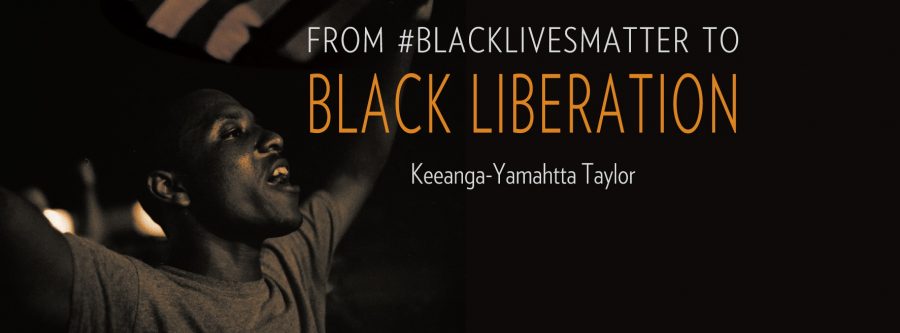From Black Lives Matter to Black Liberation
May 24, 2016
Dr. Keeanga-Yamahtta Taylor is not your ordinary graduate or alumna.
Activist, professor, author and mom, she does it all. The Princeton Associate Professor and NEIU graduate, class of ‘07, often gives lectures and speeches on her work in African American studies, black politics, housing inequality and issues of race and class.
She has written for publications such as “Al Jazeera America,” “The Guardian,” “In These Times” along with many others. She has done work with victims’ families of police violence and the families of death-row inmates across the country.
So it’s no surprise when her April book signing at the Chicago Cultural Center was packed and late arrivals were turned away.
More than 600 people listened to her speak with passion and emotion both her journey in her newest book, “From #Black Lives Matter to Black Liberation,” and other global issues.
Her voice echoed off the tiffany glass dome and brought a different light to a usually sad topic.
Discussion of the issues facing black people is very rarely seen as something other than stirring up trouble or depressing. The issues faced by black Americans are nothing short of overwhelming. How can a topic with so many factors and so few available solutions be anything other than overwhelming?
“It’s hard to believe eight years ago when Obama became president of the United States, pundits and politicians alike dared to suggest that the United States had entered into a post racial era,” Taylor explained. “How ironic then that in the last 19 months of Obama’s presidency we have witnessed the birth of a black social movement (#blacklivesmatter) and the revival of radical black politics.”
She remarked on the emergence of female leadership in the newest formation of this movement in civil rights and liberation.
“We really have to grasp the war that has happened against black men in this country but also recognizing, if you’re a black woman who has black men in your life,” Taylor said. “It’s hard to be a black woman in the country and not know a black male who has not been arrested, has not been incarcerated.”
Taylor detailed the crucial role women have always played in the movement that is now moving from behind the scenes to the forefront.
The true task is recognizing the difference between a generation gap and opportunists adopting causes to suit their agenda. There is a disconnected nature between #blacklivesmatter and the original Civil Rights Movement in the ‘60s. Sometimes, it’s best to embrace the generation gap.
“Young people who don’t have all the burdens and the weight of failures from the past of what can happen when you organize for a long time unsuccessfully…successfully and start to perhaps become more conservative about what you can do,” she explained. “We all have a stake in doing something different.”
When asked what she would want her son to take away from her book when he, hopefully, one day reads it, Taylor said:
“To me the book is all about the resilient struggle of black people. That to me is the heart of my book. It is that all of these things are happening but it’s the black movement…the struggle of black people against racism and oppression in this country that has the ability to transform all of politics in this country. To me it’s inspiring. It’s not pessimistic. It’s a source of inspiration. It’s the reason why we continued to organize and to fight even when it seems so hard (and) so difficult. And ‘When will we win?’ ‘Will we win?’ We don’t know and it doesn’t matter if we know. Because it’s the struggle itself.”









Blacklifematterpghorg • May 28, 2016 at 11:43 am
The 2016 #Blacklivesmatter National Convention will take place in Pittsburgh, Pennsylvania on July 14, 15 and 16. The theme is “PUTTING A NATIONAL TEAM, TOOLS, STRATEGY, MESSAGE TOGETHER.” As the days have passed what’s becoming clear is #Blacklivesmatter mantra lacking concept, approach, methodology and clarity. Glaringly, there appears no capacity to lift the movement to the next level. #Blacklivesmatter lacks depth in its articulation. We must better explain the theoretical perspective espoused. By attending #Blacklivesmatter activists will enhance the group’s “ability and competency” to better engender desired results. Interestingly, the Blacklifematterpgh.org group has “put in writing MORE THAN FOUR YEARS AGO” the same plan that the Urban League just announced and the national media appears to agree with. How many “BLACK LIVES” would have mattered if they would have listened to us more than four years ago? Nonetheless, we need “URGENT” philanthropy support in Pittsburgh for the 2016 National Convention. Your donation can be made online to PayPal account. http://www.blacklifematterpgh.org/july-2016-convention-for–blacklivesmatter-activists.html